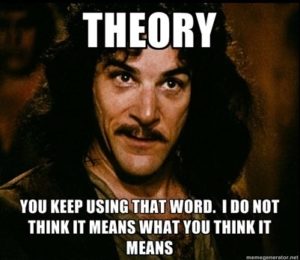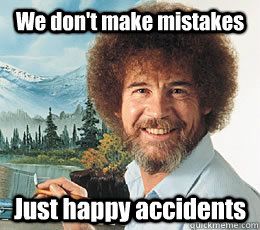When pursuing my Master’s I enrolled in a summer course entitled “Theory of Education”. For many in the class it was the kind of backward psychobabble that bore little relevancy on actual classroom technique and management, focusing primarily on Behaviorism and Constructivism.

It has now been well over a decade since those early days of learning, and I have only grown in appreciation of the experience gained during those few months.
Fear not, this will not be a summation of educational theory and delivery methods. I could not give any theory justice this far removed. No, like any good learning experience it wasn’t what was said that impacted me so much, but rather what was done.
Although most of those taking part in the class checked out day one, there were a few of us interested enough to make the classroom dialogue interesting. All the other students were already elementary or secondary teachers attempting to shore up their credentials and bank accounts by adding a Master’s to their wall. I was still in my educational infancy, a TA at the college without much in the way of practical experience.
The professor was a devote Contructivist and every lesson seemed to have a tinge of personal bias. Excellent for me who had latched on to Contructivism, but bad for the other interested parties who had seen Behaviorism work in their early education classrooms. Many of our sessions ended up turning into debates, often heated and passionate. At one point, midway through the summer semester, a frustrated elementary teacher stood up and declared that she would never understand Contructivism, and that the instructor would have to fail her on the spot because she was a Behaviorist for life.
I was at full attention, expecting some witty retort and conversion right then and there. What I got was a life lesson that stuck with me more than all the academic and education theories crammed into my textbooks. He smiled, warm, friendly, his debate tone drifted away replaced by a Bob Ross jovial melancholy, and he said that was okay, that he respected her beliefs even if they weren’t his own, and he wouldn’t want her beliefs to change simply because of his.
 More important than theory I had witnessed practical implementation of the the greatest skills higher education can instill; patience, kindness, and critical thinking. The ability to accept that there are different views beyond your own, and even if you are in a place of power you should not attempt to convert opinions, but encourage personal discovery.
More important than theory I had witnessed practical implementation of the the greatest skills higher education can instill; patience, kindness, and critical thinking. The ability to accept that there are different views beyond your own, and even if you are in a place of power you should not attempt to convert opinions, but encourage personal discovery.
Beliefs may define an individual, but they are not the reason society succeeds. Kindness, understanding, and curiosity are what propel both education and mankind, allowing us to achieve great things together, no matter what theories we happen to follow.

